Is the American economy about to fall back into the pandemic pit?
Looks like Biden may have bailed on super-unemployment way too early

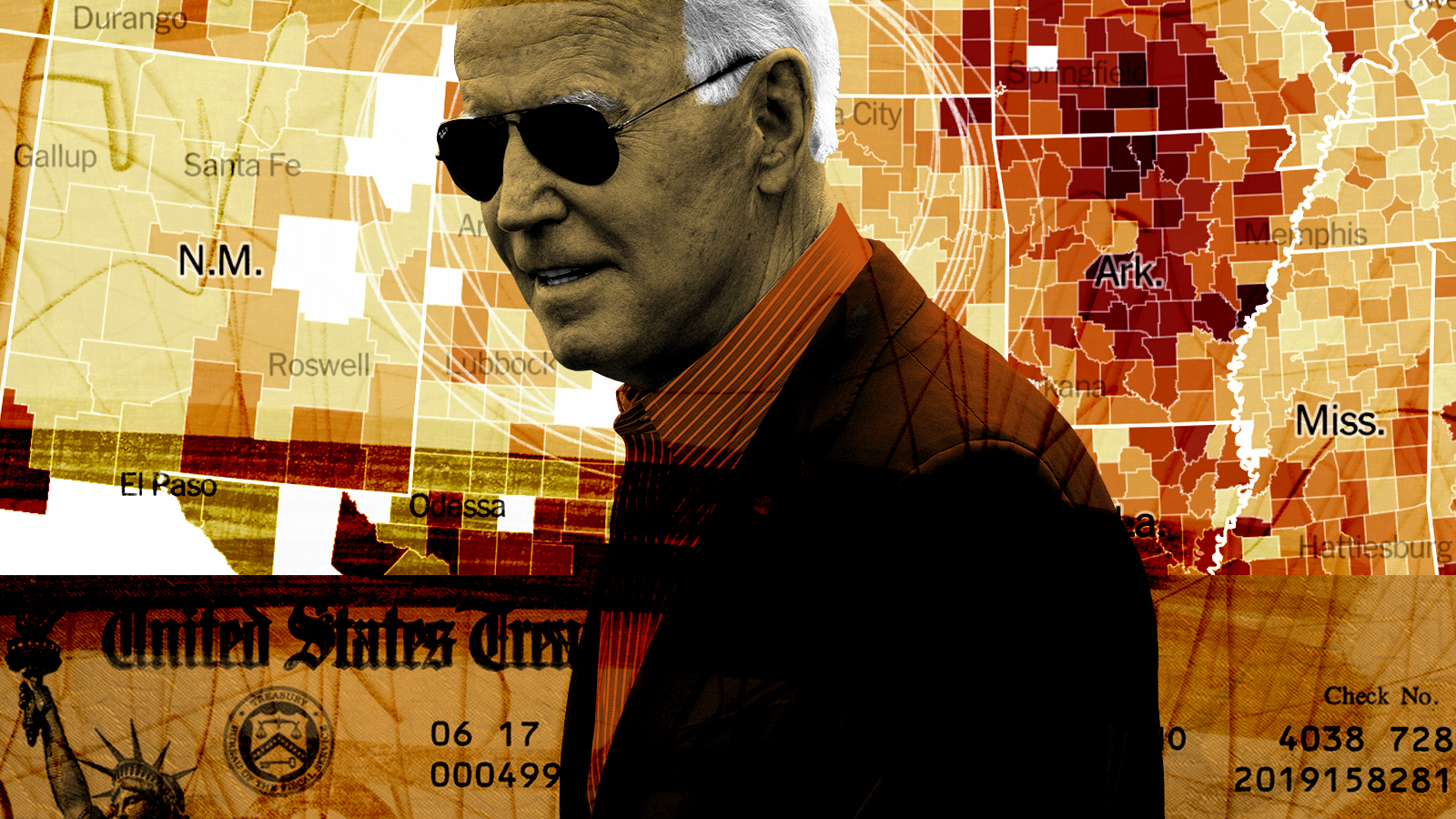
A free daily email with the biggest news stories of the day – and the best features from TheWeek.com
You are now subscribed
Your newsletter sign-up was successful
As infrastructure negotiations drag on interminably, depressing liberal base voters about the dysfunctional U.S. political system, President Biden and the Democrats still seem to have one political ace in the hole: the economy. It looks reasonably likely that all the pandemic rescue packages have put enough money into Americans' pockets to create the first serious full employment boom in more than 20 years. Or at least it did, until the latest wave of the pandemic hit.
Today, the Delta variant of coronavirus is growing across the country, especially in less-vaccinated areas, raising the possibility that people could shy away from normal activities and the economic recovery could falter. Biden might live to regret his decision to abandon super-unemployment — the $300 boost to unemployment benefits (plus other expansions) contained in the American Rescue Plan that most conservative states have already ditched, and which will expire fully in September.
Largely because of conservative vaccine refusal, states like Arkansas, Missouri, Louisiana, and Alabama are once again suffering galloping outbreaks and surging rates of hospitalization. Cases are increasing less in heavily-vaccinated places like New York, and hospitalizations barely at all. Unlike the U.K., which has seen a significant Delta outbreak but few deaths because of widespread vaccination, thousands of Americans could die over the next month or two because Tucker Carlson, Facebook, and YouTube tricked them into not taking the vaccine.
The Week
Escape your echo chamber. Get the facts behind the news, plus analysis from multiple perspectives.

Sign up for The Week's Free Newsletters
From our morning news briefing to a weekly Good News Newsletter, get the best of The Week delivered directly to your inbox.
From our morning news briefing to a weekly Good News Newsletter, get the best of The Week delivered directly to your inbox.
I had previously suspected that the vaccines would quietly end the pandemic in the U.S., because I thought conservatives and other vaccine-resistant groups would gradually come around as it became super obvious that the vaccines are safe and COVID is very much not. But it turns out you should never, ever underestimate the irresponsibility of the conservative propaganda apparatus. Some right-wing media has recently turned somewhat pro-vaccine, but that is coming after months and months of deranged anti-vaccine paranoia that cemented anti-vax attitudes as a central part of conservative identity. When Sean Hannity tried to convince his viewers to get their shots, the furious backlash made him retreat immediately.
This fresh wave of the virus might damage the economy, in turn. A study conducted last year showed that people stopped doing normal activities as cases surged before any kind of official lockdown, not after. There was never any kind of tradeoff between the economy and controlling the pandemic — on the contrary, the only way to restore economic health was to control the virus.
Now, it could be that unvaccinated Americans will keep charging out into the teeth of the Delta wave and the economic damage will be minimal. But it is surely possible that even they will get leery of normal activities if their friends and family start dropping like flies. And while the vaccines do apparently prevent most infection, and provide nearly 100 percent protection against being hospitalized or dying from Delta, there are still many stories of breakthrough infections that got past the vaccine. Cautious vaccinated people will likely refrain from things like indoor dining at least so long as cases are high. As Jeff Stein writes at The Washington Post, this appears to be happening in the U.K.
That brings me back to super-unemployment. As I wrote previously, seemingly all it took for the entire political establishment of both parties to abandon this benefit was a handful of restaurant owners whining on television that they couldn't find enough workers at the wages they were offering. That inspired 25 conservative states to cut off benefits early — despite the fact that, as Matt Bruenig argues at People's Policy Project, it is facially illegal for them to cut off the expansion of benefits to gig workers and other folks not normally eligible for unemployment (though they can refuse the $300 supplement).
A free daily email with the biggest news stories of the day – and the best features from TheWeek.com
Biden did nothing to stop them because he agreed with their position. For decades the hegemonic view among American political elites has been that the government needs to force people to work, by hook or by crook. As soon as the pandemic appeared to be easing for good, Democrats became deeply uncomfortable imagining lazy workers sitting at home collecting generous unemployment, even for just a few more months.
But imagination was all that was going on there. In a bleak irony, it turns out cutting off super-unemployment did nothing to get people into jobs. Data from economist Arin Dube shows that the states that did so actually saw a decrease in the share of adults with jobs, while those that kept the benefit saw an increase. Trying to bludgeon the working class into jobs accomplished the exact opposite. (It's not yet clear what is going on with that, but it likely has something to do with cutting benefits withdrawing tons of income from those states, and the fact that it is quite difficult to qualify for unemployment in the first place.)
Perhaps America will get lucky on this one — maybe conservatives will suddenly listen to reason and get vaccinated, or maybe the Delta surge will only last another few weeks. But it is inarguable that it would have been handy to have super-unemployment through September, at a bare minimum. If I were Democrats, I would be thinking about another rescue package to tide Americans over through the next few months.
Ryan Cooper is a national correspondent at TheWeek.com. His work has appeared in the Washington Monthly, The New Republic, and the Washington Post.
-
 Why is the Trump administration talking about ‘Western civilization’?
Why is the Trump administration talking about ‘Western civilization’?Talking Points Rubio says Europe, US bonded by religion and ancestry
-
 Quentin Deranque: a student’s death energizes the French far right
Quentin Deranque: a student’s death energizes the French far rightIN THE SPOTLIGHT Reactions to the violent killing of an ultra-conservative activist offer a glimpse at the culture wars roiling France ahead of next year’s elections.
-
 Secured vs. unsecured loans: how do they differ and which is better?
Secured vs. unsecured loans: how do they differ and which is better?the explainer They are distinguished by the level of risk and the inclusion of collateral
-
 Unemployment rate ticks up amid fall job losses
Unemployment rate ticks up amid fall job lossesSpeed Read Data released by the Commerce Department indicates ‘one of the weakest American labor markets in years’
-
 Is the UK headed for recession?
Is the UK headed for recession?Today’s Big Question Sluggish growth and rising unemployment are ringing alarm bells for economists
-
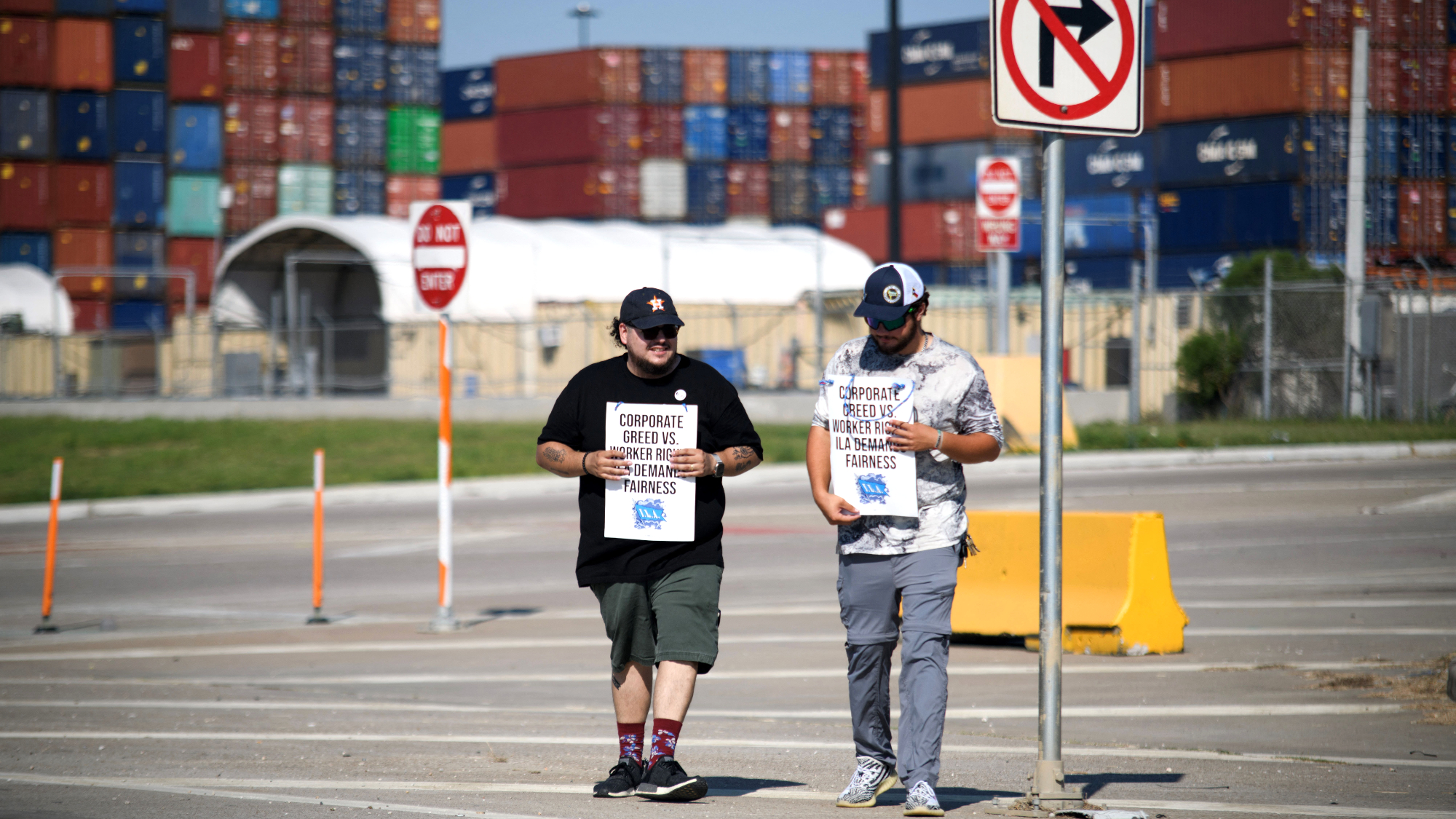 Ports reopen after dockworkers halt strike
Ports reopen after dockworkers halt strikeSpeed Read The 36 ports that closed this week, from Maine to Texas, will start reopening today
-
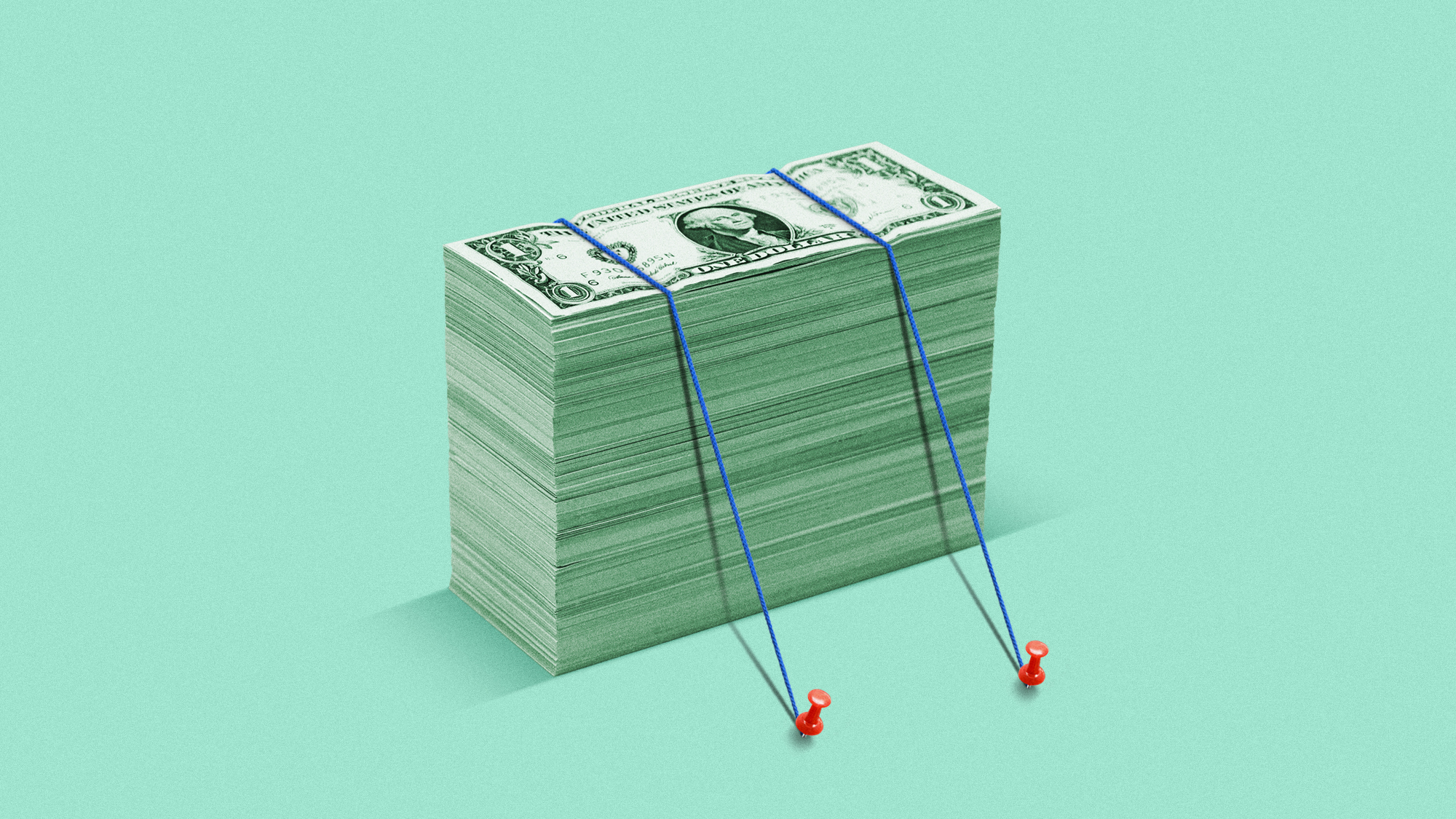 Would Trump's tariff proposals lift the US economy or break it?
Would Trump's tariff proposals lift the US economy or break it?Talking Points Economists say fees would raise prices for American families
-
 Are we getting a 'hard landing' after all?
Are we getting a 'hard landing' after all?Today's Big Question Signs of economic slowdown raise concerns 'soft landing' declarations were premature
-
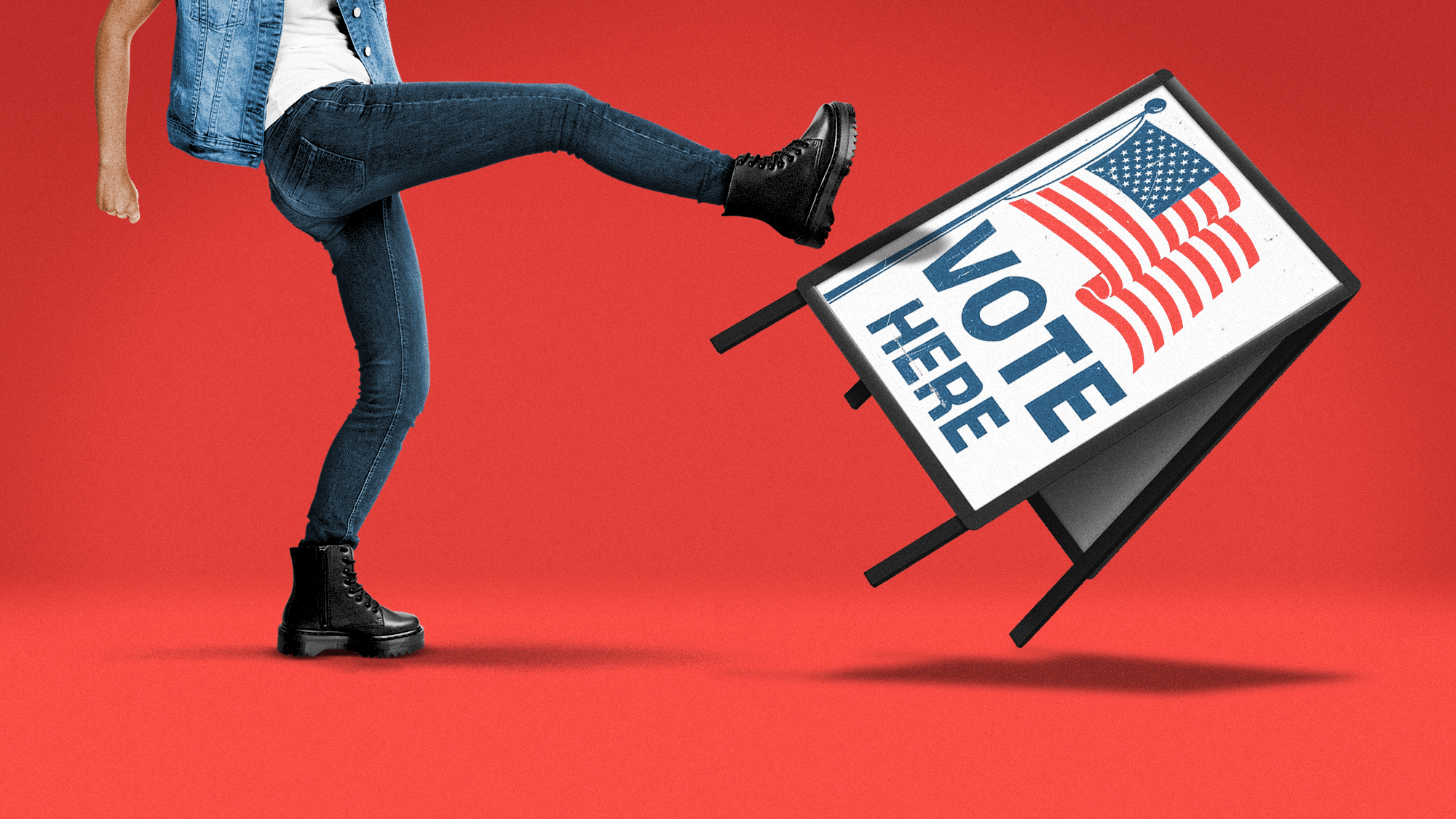 Will college Gaza protests tip the US election?
Will college Gaza protests tip the US election?Talking Points Gaza protests on U.S. campuses pose problems for Biden like the ones that hurt Lyndon B. Johnson in the '60s
-
 Can Trump get a fair trial?
Can Trump get a fair trial?Talking Points Donald Trump says he can't get a fair trial in heavily Democratic Manhattan as his hush money case starts
-
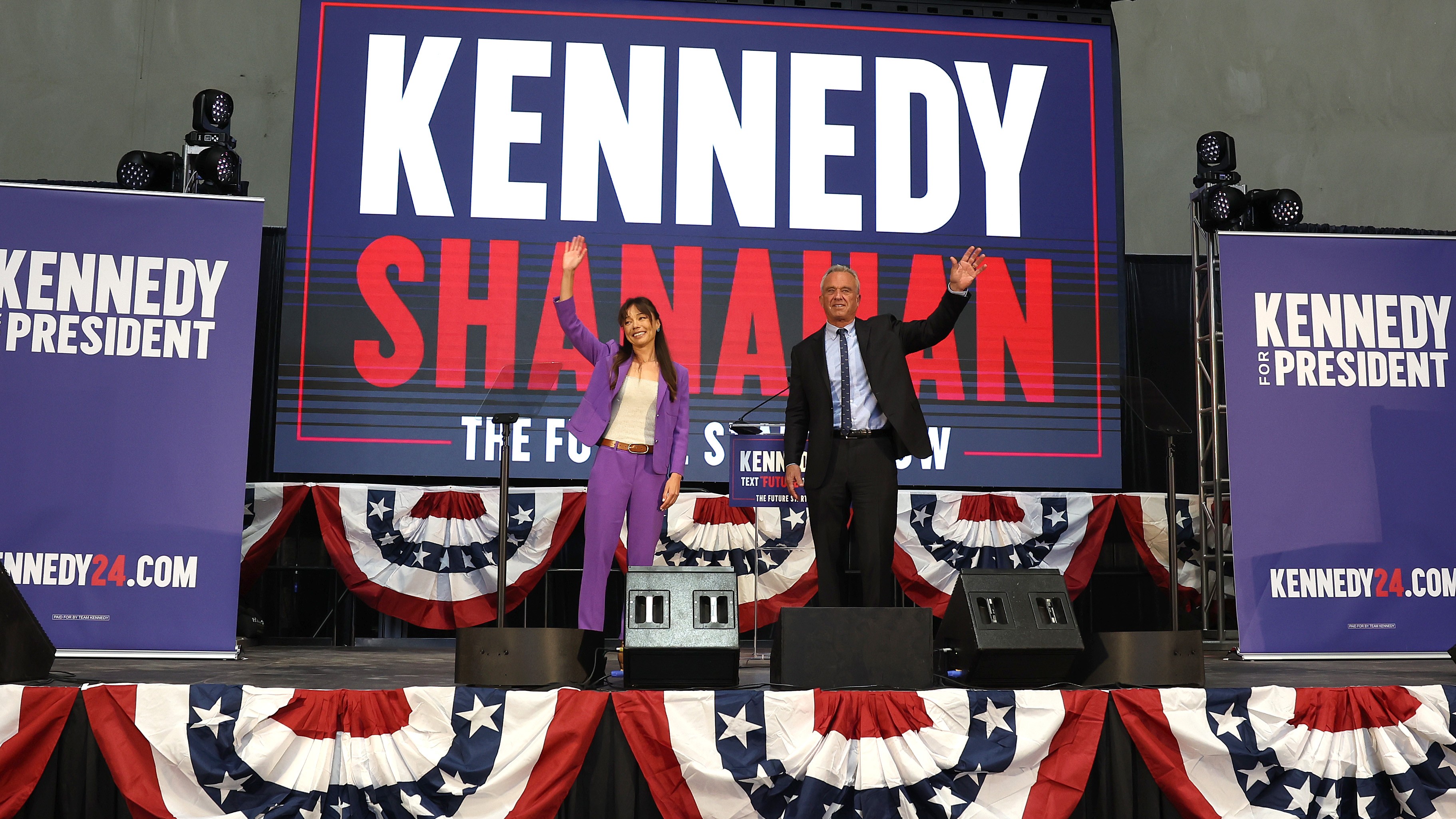 What RFK Jr.'s running mate pick says about his candidacy
What RFK Jr.'s running mate pick says about his candidacyTalking Points Robert F. Kennedy Jr.'s' running mate brings money and pro-abortion-rights cred to his longshot presidential bid
